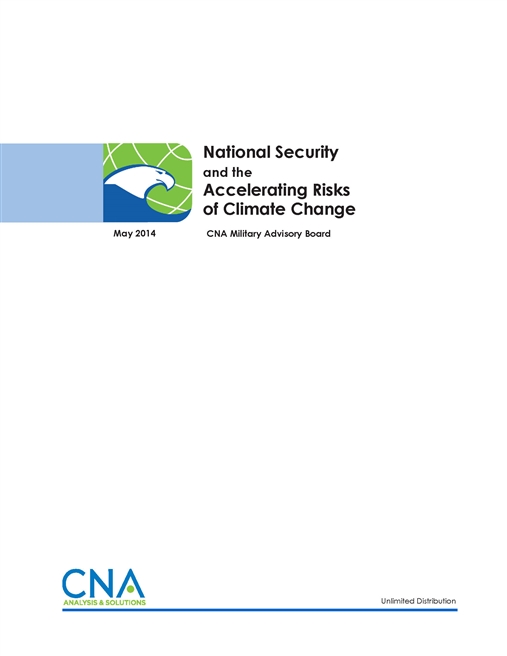The nature and pace of observed climate changes–and an emerging scientific consensus on their projected consequences—pose severe risks for our national security. During our decades of experience in the U.S. military, we have addressed many national security challenges, from containment and deterrence of the Soviet nuclear threat during the Cold War to political extremism and transnational terrorism in recent years. The national security risks of projected climate change are as serious as any challenges we have faced.
Since we published our first report in 2007 on the national security implications of climate change, we have witnessed nearly a decade of scientific discoveries in environmental science, a burgeoning scholarly literature on global complex interdependence among nations, and a series of reactions (or in many cases, failures to react) to projected climate change. Hence, we were compelled to provide an update to our report. Over several months and meetings, we listened to scientists, security analysts, government officials, industry representatives, and the military. We viewed their information through the lens of our military experience as warfighters, planners, and leaders. Our discussions have been lively, informative, and very sobering.
At the end of the day, we validate the findings of our first report and find that in many cases the risks we identified are advancing noticeably faster than we anticipated. We also find the world becoming more complex in terms of the problems that plague its various regions. Yet thinking about how to manage the risks of projected climate change as just a regional problem or—worse yet—someone else’s problem may limit the ability to fully understand their consequences and cascading effects. We see more clearly now that while projected climate change should serve as catalyst for change and cooperation, it can also be a catalyst for conflict.
We are dismayed that discussions of climate change have become so polarizing and have receded from the arena of informed public discourse and debate. Political posturing and budgetary woes cannot be allowed to inhibit discussion and debate over what so many believe to be a salient national security concern for our nation.
Download reportUnlimited Distribution
Details
- Pages: 45
- Document Number:
- Publication Date: 3/8/2014
